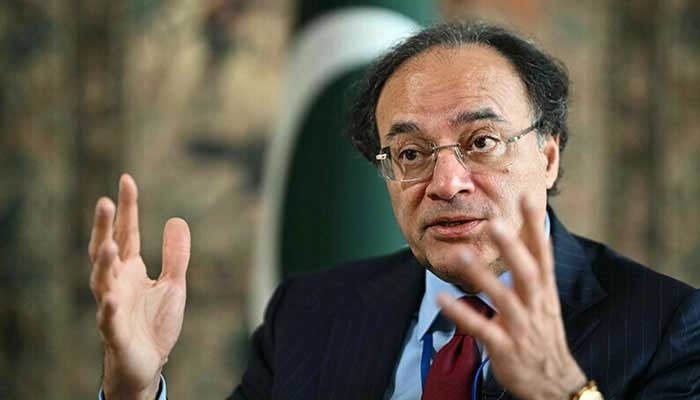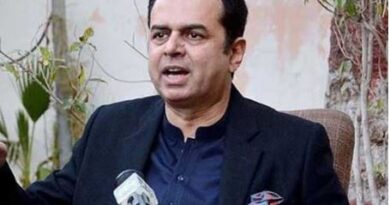Aurangzeb defends budget as relief-oriented, industry-driven
Staff Report
ISLAMABAD: Finance Minister Muhammad Aurangzeb on Monday called the FY2025–26 budget a balanced plan aimed at public relief, industrial growth, spending cuts, revenue enhancement, and fair tax enforcement to drive sustainable, export-led growth.
While concluding the debate on the general discussion of the budget, the minister announced several tax and relief measures that were incorporated into the budget following suggestions from the finance committees of both the National Assembly and the Senate.
He said the government was committed to economic stability amid regional uncertainty.
Aurangzeb said the government had announced major relief for the salaried class, stating that the income tax rate for those earning up to Rs3.2 million had been reduced from the proposed 2.5% to 1% for those earning between Rs0.6 million and Rs1.2 million annually.
He clarified that no tax would be imposed on pension commutation or gratuity, adding that only individuals receiving pensions above Rs10 million will be taxed, while those over 75 years of age are fully exempt.
On the solar energy front, the minister clarified that the earlier proposed 18% sales tax on imported solar panel components had been reduced to 10% and will apply only to 46% of imported items, resulting in only a 4.6% increase in the price of imported solar panels.
The minister said that, under the prime minister’s special directives, the powers of the Federal Board of Revenue (FBR) to arrest individuals have been strictly regulated.
In cases involving Rs50 million or more, the FBR cannot arrest anyone without a court warrant and only under specific conditions, such as deliberate evasion after three notices, an attempt to abscond, or formal referral for prosecution.
Arrests must also be approved by a three-member FBR committee, and the accused must be presented before a special judge within 24 hours, ensuring protection against arbitrary detention and abuse of authority.
The Finance Bill 2025-26 had proposed restrictions on large asset purchases by undocumented individuals. However, following the PM’s direction, these restrictions will not apply to residential houses up to Rs50 million, commercial plots or properties up to Rs100 million, and the purchase of vehicles worth up to Rs7 million.
Additionally, under the existing law, capital gains tax will not apply to property sold after six years of purchase, provided it was acquired before July 1, 2024.
However, such transactions will be subject to a 4.5%–6% withholding tax on purchase, which he said was generally returned upon filing returns.
He added that property held for personal use for 15 years or more would not be subject to this withholding tax, adding that keeping in view the positive contribution of e-commerce to the economy, the government had rationalised the tax to help it flourish.
Aurangzeb added that while export facilitation schemes in recent years allowed exporters to import raw materials without paying taxes and duties, the policy unintentionally distorted market prices of domestically produced cotton and yarn, adversely affecting local farmers.
To address this, the government has proposed imposing a sales tax on the import of raw cotton and yarn to reduce the price gap between imported and local products and to support the domestic agriculture sector, according to the finance minister.
The finance minister informed that new tax measures have been carefully designed to avoid burdening the common man.
In terms of income tax reforms, he proposed raising the tax rate on inter-corporate dividends derived from mutual funds and similar instruments from 25% to 29%, bringing it in line with other sources of income.




